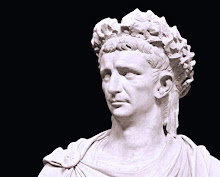As I wrap up this blog for a short time being, I am
devoting this post in order to set down some of my thoughts and defending some
of my choices.
I started this blog in part to have reason to revisit the Korean news media, and see if it has changed in tone since I have immigrated to America. When I left for America years ago I felt that despite the rapidly changing world, the traditional media in South Korea was still too insular, too mired in old view of the world. We send out our children in record numbers to other countries in order to acquire skills and education, but in Korea itself our understanding about the world is still far too primitive. And that the media focused mostly on sensations and failed to give adequate understanding to greater world. This was reflected not only on the Korean newspapers and magazine I read for this class, but in blogs as well.
In the course of the class, the profound events in Syria was in the headlines. Yet, in Korean news they were muffled sound in the distance. It did not assume the center of attention, and more importantly, in general, failed to show reporting that were little different than the American one. Korean perspective was missing. Why did our own memory merely 30 years ago fail to inspire our own perspective?
A critic would say that the media and the citizenry in this country are not that different from Koreans. And that criticism has some merit. But what surprised me is the largely supporting of America in the conservative media, such as Chosun-illbo and Joongang-illbo in political news. True, in economics the papers were more balanced, but here all the media seemed concerned was about attainment of profit or security. However, I feel I did not quite manege to see the grand narrative of changing opinions and worldviews I expected when I begun the blog. Nuanced worldview is not only missing, but is not even considered as important.
A reader of this blog might be surprised at the restricted sourcing of this blog, I drew primary on the established Medias and few professional papers. As for that, there are two reasons. First, reasons is largely technical. Blogs service in Korea, such as Naver, and Daum in Korea requires intrusive registration that I was not in position to do so (all my information needed are ironically in Korea). Second was living in blogging culture in Korea was different in some careful way that I could not get used to or adjust in time (if only I could figure out what that was more clearly...). Quite possibly despite my best efforts, years of living away from Korea may have distanced me from the worldview far more than I have realized.
This project was easy in some way, hard in others, and it was a joyous journey for me. I hope the reader whoever read it also found it joyous.
I started this blog in part to have reason to revisit the Korean news media, and see if it has changed in tone since I have immigrated to America. When I left for America years ago I felt that despite the rapidly changing world, the traditional media in South Korea was still too insular, too mired in old view of the world. We send out our children in record numbers to other countries in order to acquire skills and education, but in Korea itself our understanding about the world is still far too primitive. And that the media focused mostly on sensations and failed to give adequate understanding to greater world. This was reflected not only on the Korean newspapers and magazine I read for this class, but in blogs as well.
In the course of the class, the profound events in Syria was in the headlines. Yet, in Korean news they were muffled sound in the distance. It did not assume the center of attention, and more importantly, in general, failed to show reporting that were little different than the American one. Korean perspective was missing. Why did our own memory merely 30 years ago fail to inspire our own perspective?
A critic would say that the media and the citizenry in this country are not that different from Koreans. And that criticism has some merit. But what surprised me is the largely supporting of America in the conservative media, such as Chosun-illbo and Joongang-illbo in political news. True, in economics the papers were more balanced, but here all the media seemed concerned was about attainment of profit or security. However, I feel I did not quite manege to see the grand narrative of changing opinions and worldviews I expected when I begun the blog. Nuanced worldview is not only missing, but is not even considered as important.
A reader of this blog might be surprised at the restricted sourcing of this blog, I drew primary on the established Medias and few professional papers. As for that, there are two reasons. First, reasons is largely technical. Blogs service in Korea, such as Naver, and Daum in Korea requires intrusive registration that I was not in position to do so (all my information needed are ironically in Korea). Second was living in blogging culture in Korea was different in some careful way that I could not get used to or adjust in time (if only I could figure out what that was more clearly...). Quite possibly despite my best efforts, years of living away from Korea may have distanced me from the worldview far more than I have realized.
This project was easy in some way, hard in others, and it was a joyous journey for me. I hope the reader whoever read it also found it joyous.
